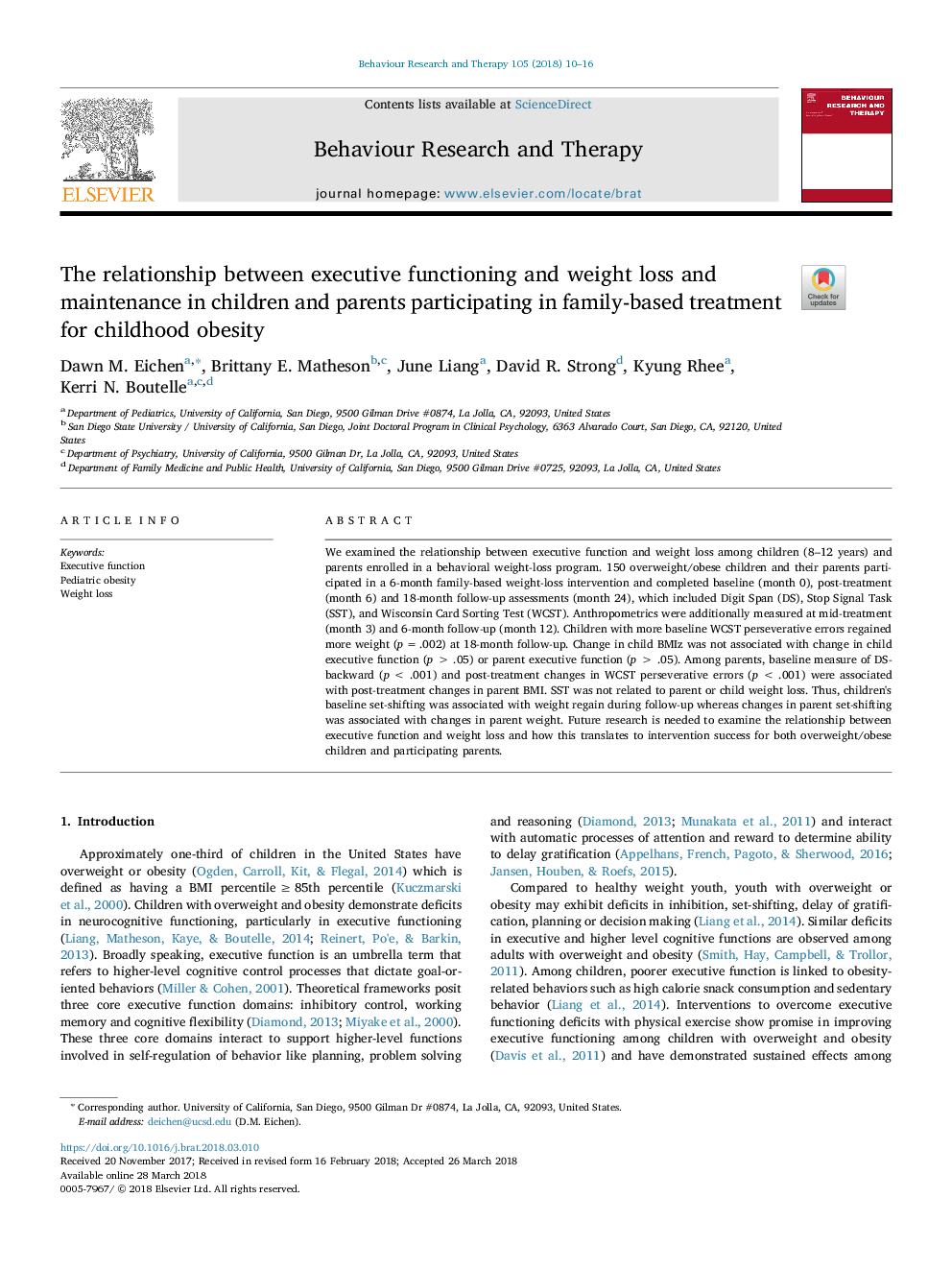ترجمه فارسی عنوان مقاله
رابطه بین عملکرد اجرایی و کاهش وزن و نگهداری در کودکان و والدین شرکت کننده در درمان مبتنی بر خانواده برای چاقی کودکان
عنوان انگلیسی
The relationship between executive functioning and weight loss and maintenance in children and parents participating in family-based treatment for childhood obesity
| کد مقاله | سال انتشار | تعداد صفحات مقاله انگلیسی |
|---|---|---|
| 153233 | 2018 | 7 صفحه PDF |
منبع

Publisher : Elsevier - Science Direct (الزویر - ساینس دایرکت)
Journal : Behaviour Research and Therapy, Volume 105, June 2018, Pages 10-16
ترجمه کلمات کلیدی
عملکرد اجرایی، چاقی کودکان کاهش وزن،
کلمات کلیدی انگلیسی
Executive function; Pediatric obesity; Weight loss;

